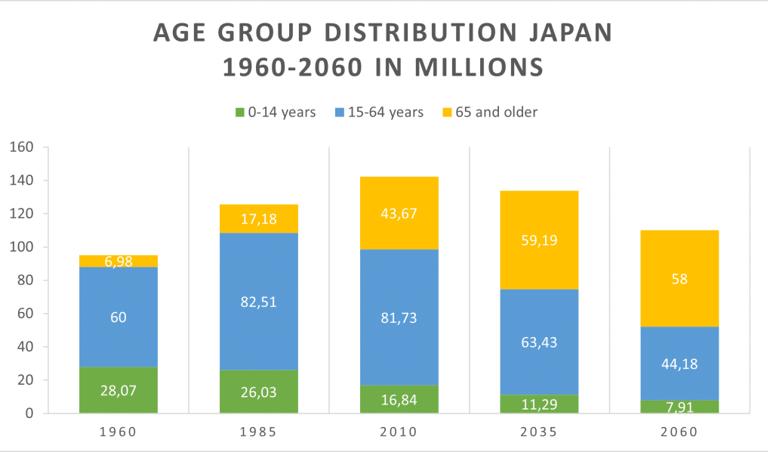The Longevity Paradox: Japan’s Aging Population and Its Impact on Economy and Culture.
Japan has become the country with the highest number of centenarians, with more than 95,000 people aged 100 or older. This remarkable phenomenon is largely due to the country’s advancements in healthcare technology.
IN BRIEFINTERNATIONAL
Thinkbrief
8/3/20252 min read


Japan has become the country with the highest number of centenarians, with more than 95,000 people aged 100 or older. This remarkable phenomenon is largely due to the country’s advancements in healthcare technology. Japan has one of the best healthcare systems in the world. The focus on preventative care, early detection of diseases, and advanced treatment methods has extended life expectancy. Moreover, the Japanese diet, known for its emphasis on fresh vegetables, fish, and minimal processed foods, plays a crucial role in promoting longevity. A sense of community and strong family ties also contribute to the well-being of older citizens. As people age, they are supported by a structure that ensures their needs are met both physically and emotionally, which helps maintain their health for much longer than in other countries.
This rising number of centenarians, however, presents challenges to Japan’s economy. With more people living longer, the burden on the younger working population becomes heavier. The country’s workforce is shrinking, and many companies struggle to find younger employees to fill critical roles. As older people continue to live longer, more resources are required for their healthcare and pensions. The government faces the challenge of managing an aging population while also maintaining its economic stability. Increased government spending on healthcare services, elderly care, and pensions puts significant pressure on Japan’s public finances. Furthermore, the working-age population, which funds these services through taxes, is rapidly declining. This shift forces Japan to rethink its approach to labor, productivity, and retirement age, while also looking for solutions to support its elderly citizens.
The cultural impact of this demographic shift is also significant. In Japan, respect for the elderly is deeply rooted in tradition. Elders are seen as valuable members of society, and their wisdom is cherished. However, as the number of centenarians increases, younger generations are beginning to question how they can support such a large population. While elderly care has always been a family responsibility in Japan, the need for institutional care is growing. Many elderly people live alone or in care facilities, a shift that alters the traditional family dynamic. This transition also affects the younger generations who face the emotional and financial burden of caregiving. In response, the country is increasingly turning to technology to care for its elderly population, from robotics in care homes to remote healthcare monitoring systems. As Japan adapts to this aging society, its culture of respect for elders remains central but faces new challenges in maintaining the traditional support structures.

